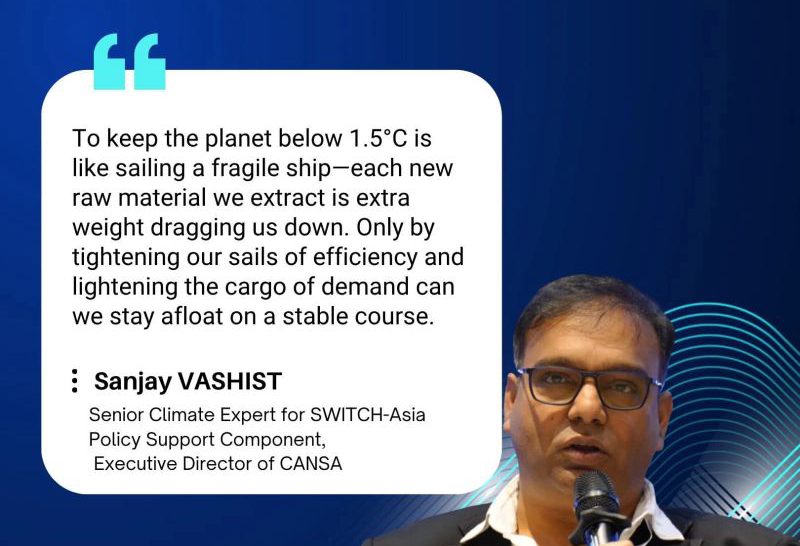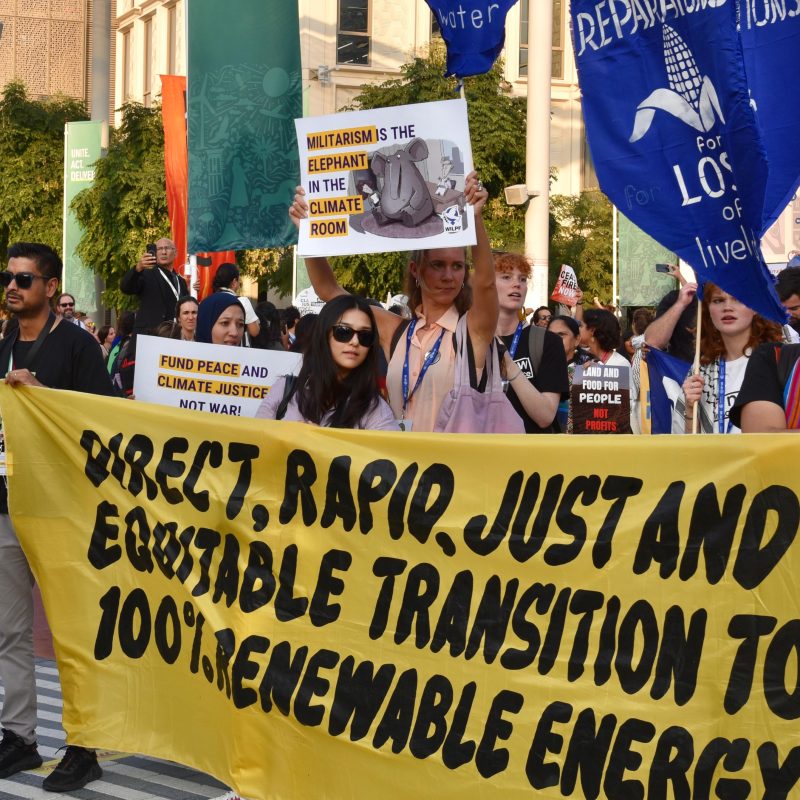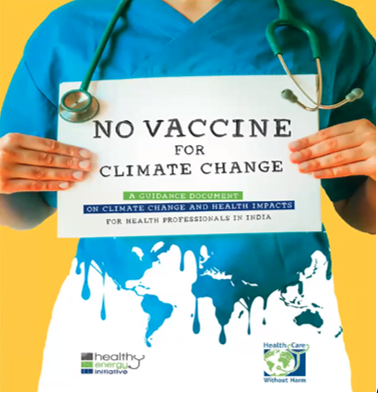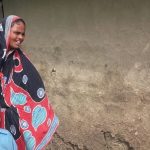Blogs - Just transition
The Climate-Material Nexus: Justice in Transition through Circular Economy for Climate Co-Benefits
By Dr. Sanjay Vashist
As we stand amidst the urgent realities of climate change, it’s increasingly clear that our existing pathways are insufficient. The latest reports remind us that we remain far from meeting the Paris Agreement’s critical goal of limiting global warming to 1.5°C. The UN Secretary-General recently issued a stark warning: “Overshooting is now inevitable.”

Why South Asia Needs Inclusive Conversations for a Just Transition
By Dr. Sanjay Vashist
South Asia’s vulnerability to climate change was tragically illustrated by the catastrophic flash floods that struck Uttarkashi, Uttarakhand, on August 5, when a sudden and powerful surge of water and debris tore through the village of Dharali and surrounding areas, leaving at least four people dead and over 100 missing. Homes, shops, hotels, and critical infrastructure were swept away in minutes, and the bustling market was left in ruins.

Budget 2025: India’s Roadmap to Climate-Resilient Growth and Global South Leadership
By Nakul Sharma
The World Economic Outlook projects global growth at 3.3 percent, butbut the IMF -projection of India’s expected GDP growth at 6.,5 percent allows it to maintain the status of fastest growing major economy in FY 25-26 as well. The economic growth figures might look attractive and mislead you in to believing that the Indian economy is fine, but the risks are almost certain. One such risk is the economic cost of “climate change.” The 2022-23 RBI report suggests that up to 4.5 percent of India’s GDP could be at risk by 2030 due to extreme heat.
An Equitable Phase Out of Fossil Fuels: A civil society equity review
By Divyanshi Yadav
The past 3 decades since the UNFCCC negotiations began, we have not tried to mitigate GHG emissions despite clear warnings. As a result the climate crisis is hitting the most vulnerable people in the Global South first and hardest…

Medical Experts come together to call for stringent measures to curb fossil fuel use for cleaner air and a means to mitigate climate change
By Divyanshi Yadav
On 7th September, the International Day of Clean Air for Blue Skies, an important webinar titled ‘Fossil Fuels, Air Pollution, Climate Change & Health: Resolving South Asia’s Air Pollution & Climate Crisis…

No Vaccine for Climate Change
By Purnima Joshi
Healthcare professionals join the fight against fossil fuels Climate trends website details Healthy Energy Initiative India, Health Care without Harm, Climate Trends and Climate Action Network South Asia (CANSA) recently […]

’tis an ill wind that’s been blowing… and it needs to go away
By Purnima Joshi
Over 30 groups representing those impacted by coal, oil and gas exploration and production from the 4 states of India, West Bengal, Tamil Nadu, Jharkhand and Chhattisgarh, on Monday joined […]

Climate Change Victims Need Money to Survive, Not Words
By Harjeet Singh, Sven Harmeling and Julie-Anne Richards
The 65-year-old is not alone. Since Cyclone Aila hit the region in the year 2009, over 2,000 families have been displaced due to…

Climate Change Drowns Festive Celebrations
By Rushati Das
The rains in India usually end in August. However, in 2017 they continued and lasted till early October. The change in monsoons has dampened the festive mood and shaken the cultural aspects, costs of celebrations and adoption of unsustainable practices.

Rich Countries Must Provide Funds for Climate Change Victims
By Harjeet Singh, Sven Harmeling and Julie-Anne Richards
Harvey, Irma, Ophelia. This year’s devastating and record-breaking hurricane season reminds us that storms turbo-charged by human-caused climate change are not a distant future threat, but a reality faced by people around the world.





